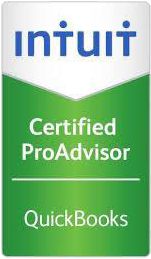Financial Statements analysing
The process of reviewing a company’s financial reports in order to determine its economic situation is called financial statement analysis. The results can be used for several review purposes such as cash flow, company liability, assets and inventory. It’s also used to identify and determine the future plans and strategies and while seeking investment capital.
For most business owners, analyzing financial statements might seem overwhelming. Hence why, hiring professional business and financial analysts is something all entrepreneurs should consider. We, at ThomasRoss Financial Group, provide just that! With us, you can avail excellent business valuation services New Jersey .
In this blog, we’ll discuss the different methods of financial analysis in depth in order to help you understand the concept thoroughly.
Methods of financial statement analysis
When it comes to analyzing financial statements, there are two main methods:
1. Horizontal and vertical analysis
The process of comparing economical information collected during several different reporting periods is called horizontal analysis. In simple words, the process of reviewing the outcomes of numerous time periods is horizontal analysis, whereas, the proportional analysis of a financial report is called vertical analysis. In other words, the process of reviewing the proportion of accounts to one another during a single period is called vertical analysis.
2. Use of ratios
In order to calculate the comparative portion of one number in regards to another, different types of ratios are used. You can compare the ratio calculated for a particular period with the ratio calculated after the said period to observe whether a company is performing well or not. Most of the times, a basic financial statement analysis will showcase most ratios to be within expectations. However, at times, a small percentage may have certain errors, which would require a reviewer’s attention. Different types of ratios are used to determine different parts of the performance of a business.
If you’re looking for business valuation services New Jersey, then ThomasRoss Financial Group is your best bet!
The basic groups of ratios are:
2.1. Liquidity ratios
Liquidity ratio is one the most radically essential set of ratios. This is because they calculate the potential of an organization to survive in the business world. The following are the ratios that fall under liquidity ratios:
Current ratio
It calculates the amount of liquidity accessible in order to pay for present-day liabilities.
Cash coverage ratio
It determines the amount of cash accessible in order to pay the interests.
Liquidity index
It calculates the time needed to turn assets into cash.
Quick ratio
It’s similar to current ratio but with one exception — it doesn’t calculate the amount of liquidity accessible in order to pay for the inventory.
2.2. Activity ratios
This set of ratio is extremely useful as they can determine the quality of management of a company. With the help of these ratios, one can determine how well a company’s management is utilizing its resources. The following are the ratios that fall under activity ratios.
Accounts receivable turnover ratio
It calculates how well a business is able collect the accounts scheduled for it to receive.
Fixed asset turnover ratio
It calculates how well businesses can generate sales from its fixed assets.
Sales to working capital ratio
It determines the amount of working capital needed to assist a given levels of sales.
Inventory turnover ratio
It calculates the amount of inventory required in order to assist a given degree of sales.
Working capital turnover ratio
It calculates how well a business can generate sales from its working capital.
Accounts payable turnover ratio
It calculates how quickly a business pays its suppliers.
2.3. Leverage ratios
This set of ratios determines the amount of debts a company owes and how well it can pay it back. The following are the ratios that fall under leverage ratios:
Fixed charge coverage
It determines how well a business can pay for its fixed costs.
Debt to equity ratio
It determines how much the management is funding operations with debt, instead of equity.
Debt service coverage ratio
It determines how well a business can pay back its debts.
2.4. Profitability ratios
This set of ratios determines how well a business can generate profit. The following are the ratios that fall under profitability ratios:
Contribution margin ratio
It determines the amount of profit earned after variable costs are subtracted from sales.
Breakeven point
It showcases at what sales level a business breaks even.
Gross profit ratio
It determines the revue after subtracting the cost of goods sold, as a part of sales.
Financial state and net analysis are important as they allow you to stay up-to-date with the economic situation of your company. If you need business valuation services New Jersey, then contact us at ThomasRoss Financial Group.




